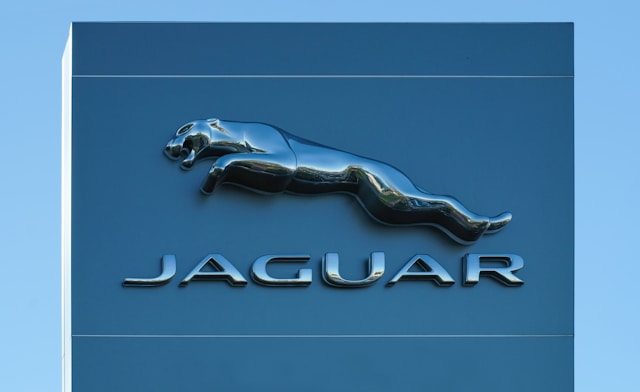The automotive giant’s significant funding aims to enhance hybrid and electric vehicle production, marking a pivotal shift in its manufacturing capabilities
Jaguar Land Rover (JLR) announced a major investment of £500 million to upgrade its Halewood factory located in Merseyside, England. This ambitious plan will enable the production of hybrid vehicles and prepare the facility for electric vehicle manufacturing, demonstrating JLR’s commitment to transitioning towards greener automotive solutions. The company has already invested £250 million in new production lines, machinery, and workforce development, with an additional £250 million earmarked for future enhancements.
The Halewood plant has a rich history, originally constructed in 1963 for the Ford Anglia. Over the years, it transitioned through various models, eventually becoming a key site for Jaguar and Land Rover when Ford owned the brands. The planned upgrades will facilitate the production of electric versions of JLR’s medium-sized SUVs, including the Discovery Sport and Range Rover Evoque. Barbara Bergmeier, JLR’s executive director of industrial operations, emphasized that Halewood will become the company’s first all-electric production facility.
Embed from Getty ImagesThis investment arrives at a crucial time as JLR, owned by Tata Motors, has faced criticism for lagging behind competitors in the electric vehicle market. The company currently offers only one electric model, the Jaguar I-Pace, while other manufacturers rapidly expand their electric lineups. However, JLR is poised to change that, committing £18 billion to develop battery-powered versions of its entire range alongside conventional petrol models. The first deliveries of the electric Range Rover, manufactured in JLR’s main facility in Solihull, are set to begin at the end of next year.
The upgrades at Halewood will also incorporate advanced technologies, including robotics and new paint-drying ovens, allowing for the parallel production of electric and internal combustion engine vehicles. This flexibility is essential for JLR to respond to fluctuating consumer demand and industry trends. Additionally, the investment will implement sustainable practices, such as installing solar panels and enhancing energy efficiency, which will help reduce the plant’s carbon footprint by approximately 40,000 tonnes of CO2 equivalent each year.
As JLR navigates the evolving landscape of the automotive industry, it faces not only challenges but also opportunities for growth. Recent years have seen the company rebound from financial difficulties, reporting record revenues of £7.3 billion in the April-to-June quarter, driven largely by strong sales of its premium Range Rover models. However, JLR must still adapt to the UK’s zero-emission vehicle mandate, which requires manufacturers to increase their sales of electric vehicles.
The future of JLR hinges on this strategic investment and its ability to capitalize on the burgeoning electric vehicle market while meeting regulatory demands.
Analysis:
Political Perspective:
Jaguar Land Rover’s significant investment aligns with the UK government’s push toward a greener automotive industry, which aims to reduce carbon emissions and meet climate targets. As the government implements policies encouraging electric vehicle adoption, JLR’s commitment to hybrid and electric production positions it favourably within a political landscape that prioritizes sustainability. This investment could also stimulate job creation in the region, fostering goodwill between the automotive industry and policymakers.
Social Perspective:
This development reflects a broader societal shift toward environmentally conscious transportation. As consumers increasingly prioritize sustainability in their purchasing decisions, JLR’s transition to electric and hybrid vehicles demonstrates responsiveness to evolving consumer preferences. This move could influence societal norms around vehicle ownership, with more individuals considering electric vehicles as viable options for everyday use, thereby contributing to a cultural shift towards eco-friendly practices.
Racial Perspective:
While the investment primarily focuses on production and sustainability, it indirectly addresses broader racial discussions surrounding environmental justice. Historically, communities of colour have often faced disproportionate impacts from pollution and environmental degradation. By investing in cleaner vehicle production, JLR may contribute to improving air quality and public health, particularly in urban areas where marginalized communities reside. This connection highlights the importance of corporate responsibility in addressing racial disparities related to environmental issues.
Gender Perspective:
The automotive industry has traditionally been male-dominated, but JLR’s investment could pave the way for greater gender inclusivity within its workforce. By expanding production capabilities and investing in employee training, JLR has the opportunity to attract and retain diverse talent, including women in engineering and manufacturing roles. Promoting gender diversity in these fields can lead to more innovative solutions and a more equitable workplace culture.
Economic Perspective:
JLR’s £500 million investment represents a significant economic commitment that not only revitalizes the Halewood plant but also supports the UK economy. The upgrades will create jobs, stimulate local businesses, and enhance JLR’s competitive edge in the global market. As demand for electric vehicles continues to grow, this strategic move positions JLR to capture a larger share of the evolving automotive market. However, the company must navigate potential challenges, such as fluctuating consumer demand and regulatory requirements, to ensure long-term profitability.
In conclusion, Jaguar Land Rover’s investment in the Halewood plant serves as a microcosm of larger trends in the automotive industry, reflecting political, social, racial, gender, and economic dynamics. As JLR strives to meet the demands of a changing market, its efforts will likely have lasting implications for the future of vehicle manufacturing and sustainability.
